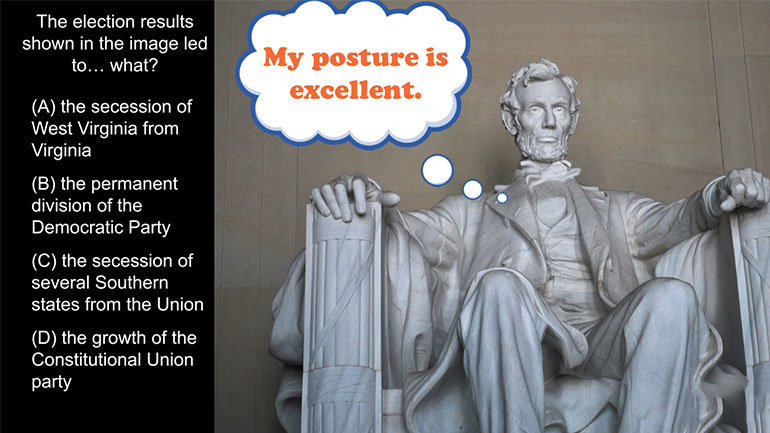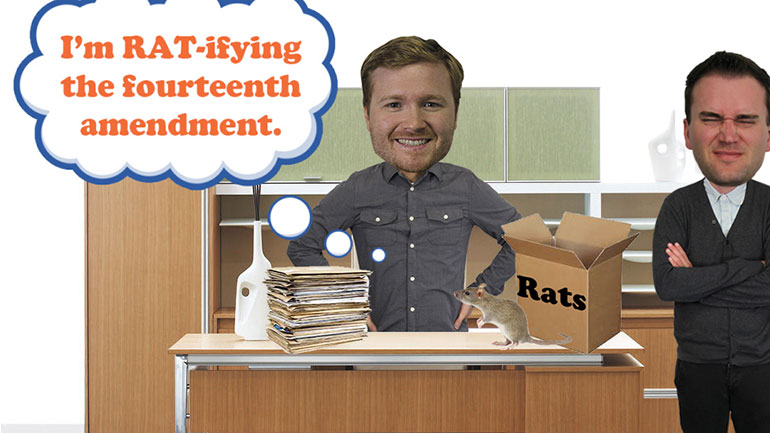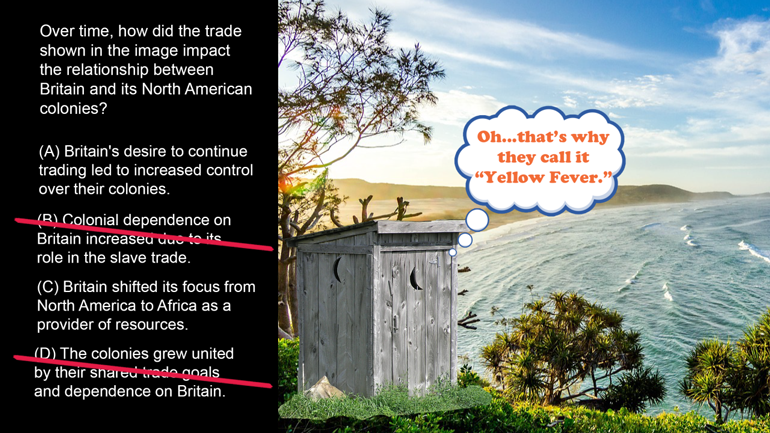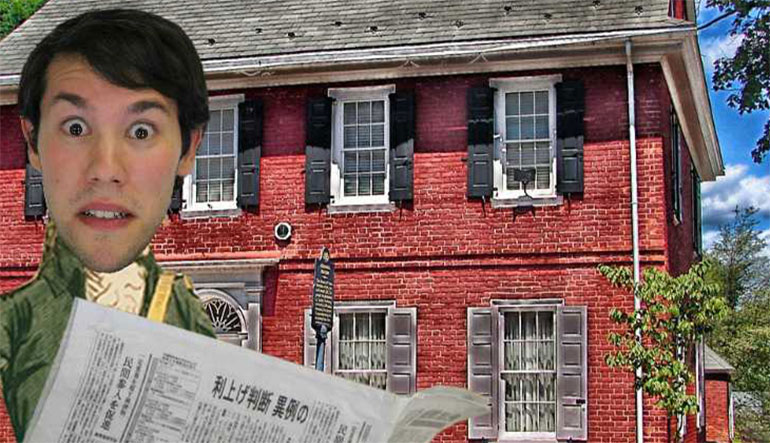ShmoopTube
Where Monty Python meets your 10th grade teacher.
Search Thousands of Shmoop Videos
AP U.S. History Videos 167 videos
AP U.S. History 3.1 Period 2: 1607-1754. Which of the following contributed most directly to the process seen in the image?
AP U.S. History Period 1: 1491-1607 Drill 3, Problem 2. The cultivation of maize, depicted in the image, also played a significant role in which of...
AP U.S. History 3.2 Period 4: 1800-1848. The goals presented in the excerpt have the most in common with which of the following?
AP U.S. History Diagnostic 9 181 Views
Share It!
Description:
AP U.S. History Diagnostic 9. How did the depletion of farmland in the Southeast increase tensions over slavery?
Transcript
- 00:00
[ musical flourish ]
- 00:03
And here's your Shmoop du jour, brought to you by dirt poor,
- 00:07
that soil that struggles to make ends meet.
- 00:10
Yeah, well, sorry.
- 00:11
How did the depletion of farmland in the Southeast
Full Transcript
- 00:15
increase tensions over slavery?
- 00:18
Hmm. And here are your potential answers.
- 00:20
[ buzzing ] [ mumbling ]
- 00:24
[ mumbling continues ] All right.
- 00:26
Well, when cotton was booming in the South,
- 00:29
farmers didn't think twice about overworking the soil,
- 00:32
or the slaves they "employed," for that matter.
- 00:34
And "employed" is in quotation marks there.
- 00:36
But eventually, that intensive farming sucked
- 00:39
the nutrients from the ground, causing a whole mess of problems.
- 00:42
Let's see which answer best describes
- 00:45
how this development soiled farmers' plans.
- 00:49
All right, did the depletion of farmland in the Southeast
- 00:51
increase tensions over slavery because A -
- 00:54
former farmers attempted to move North
- 00:56
with their slaves? Hmm?
- 00:58
Well, some slaveowners did attempt to settle in the North
- 01:01
with their slaves. But this relocation wasn't necessarily
- 01:04
a direct result of failed farms.
- 01:06
Moving on from A.
- 01:08
Did failed farms cause problems because B -
- 01:11
slaves were worked twice as hard in order to recover lost profits?
- 01:15
Well, regardless of the number of slaves on a plantation
- 01:17
or how hard they worked, the soil was too depleted
- 01:20
to grow anything other than resentment.
- 01:22
So that knocks out B and C.
- 01:24
Which means that the depletion of farmland
- 01:26
increased tensions because D -
- 01:29
debate sparked over the spread of slavery
- 01:32
as farmers moved to the Southwest.
- 01:34
Plantation owners abandoned their farms in the Southeast
- 01:38
for greener pastures - literally -
- 01:40
in the territories of the Southwest.
- 01:42
As the map shows, many of these territories were
- 01:44
undeveloped and, since they fell under the slavery line
- 01:47
of the Missouri Compromise, many farmers relocated,
- 01:50
bringing their slaves with them.
- 01:52
So D is the right answer.
- 01:54
As these slave owners moved West in search of better soil,
- 01:57
political tensions bubbled over, giving a preview of the
- 02:00
massive conflict to come.
- 02:02
Talk about getting your hands dirty.
- 02:04
[ vacuum sound ]
Related Videos
Ever heard of a "living document"? They eat and breathe just like the rest of us! They even walk around on their own two legs. Okay, fine—maybe t...
If the Puritans had gotten their way, religion would play a much larger role in lawmaking these days. Want to know more? Watch the video for all th...
What happened between the creation of the Articles of Confederation and the ratification of the current U.S. Constitution? This video analyzes the...
The Modernists thought the world had a lot of problems, and they were intent on fixing them—or at least talking about fixing them. Unfortunately,...
This video explains Federalism and the quest for a fair balance between state and national power. It covers the progression and compromises of Fede...








































































































